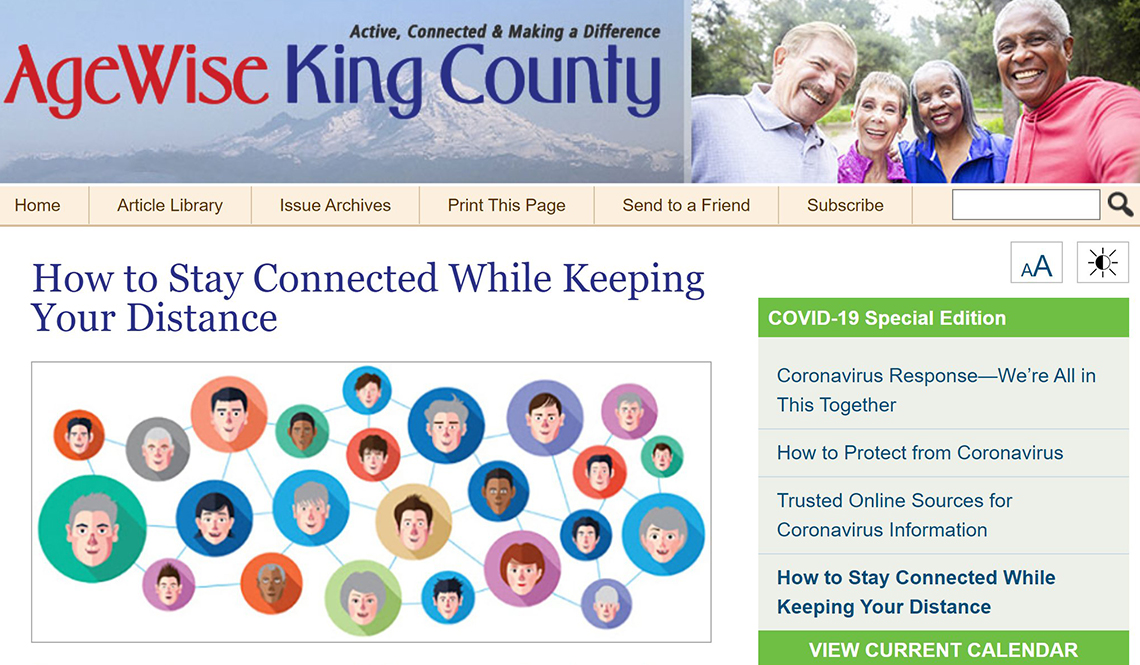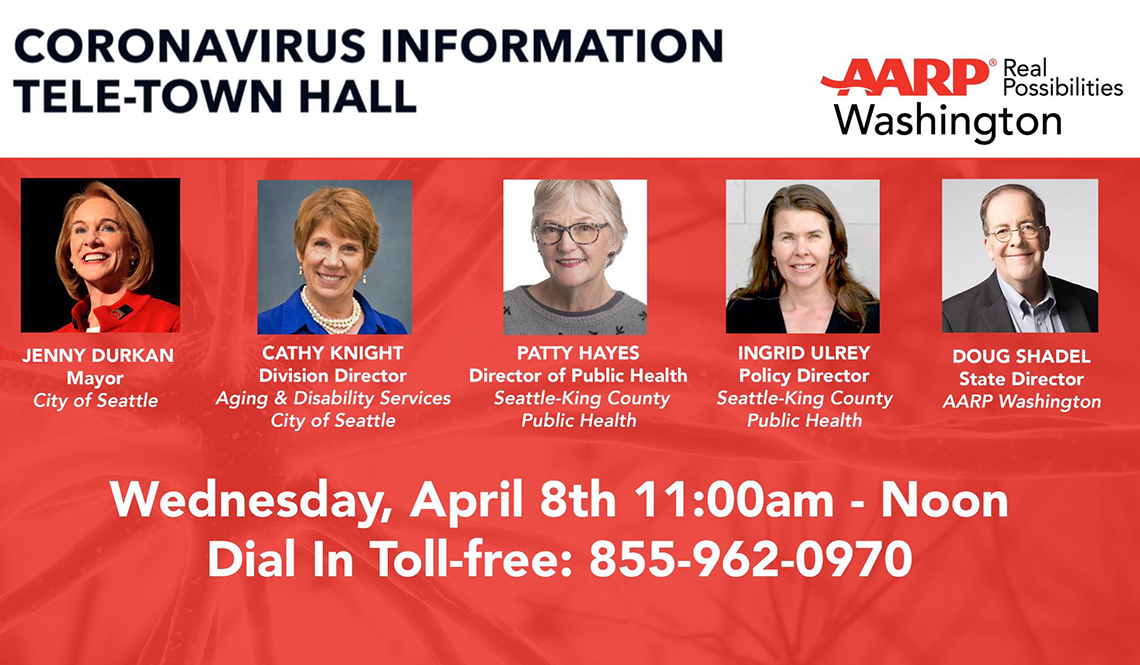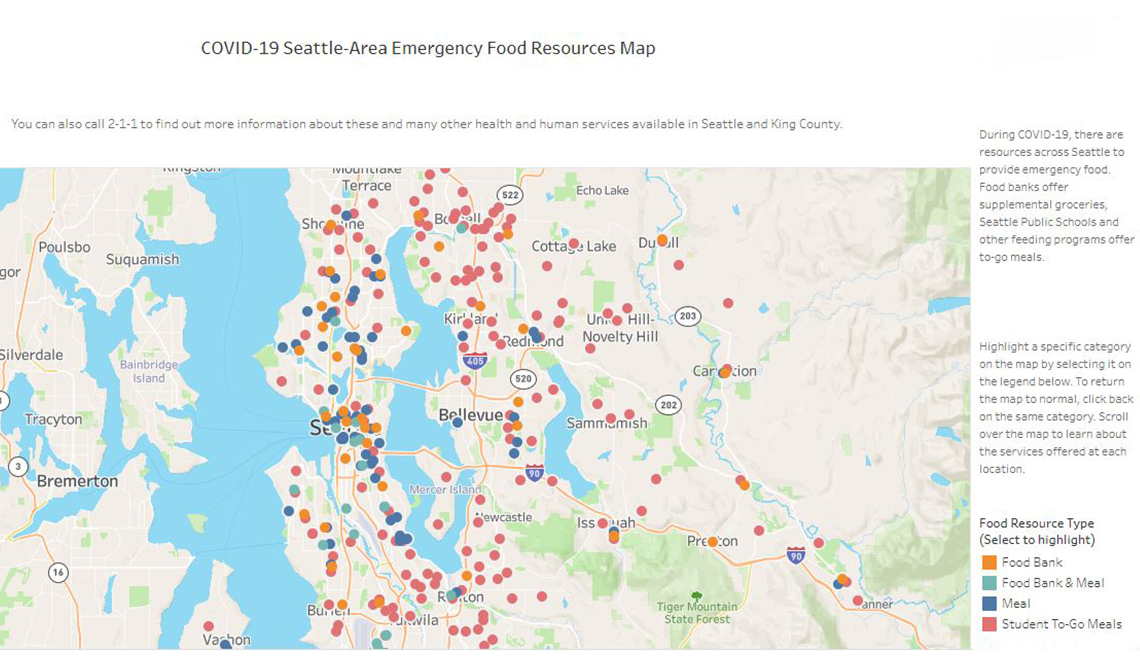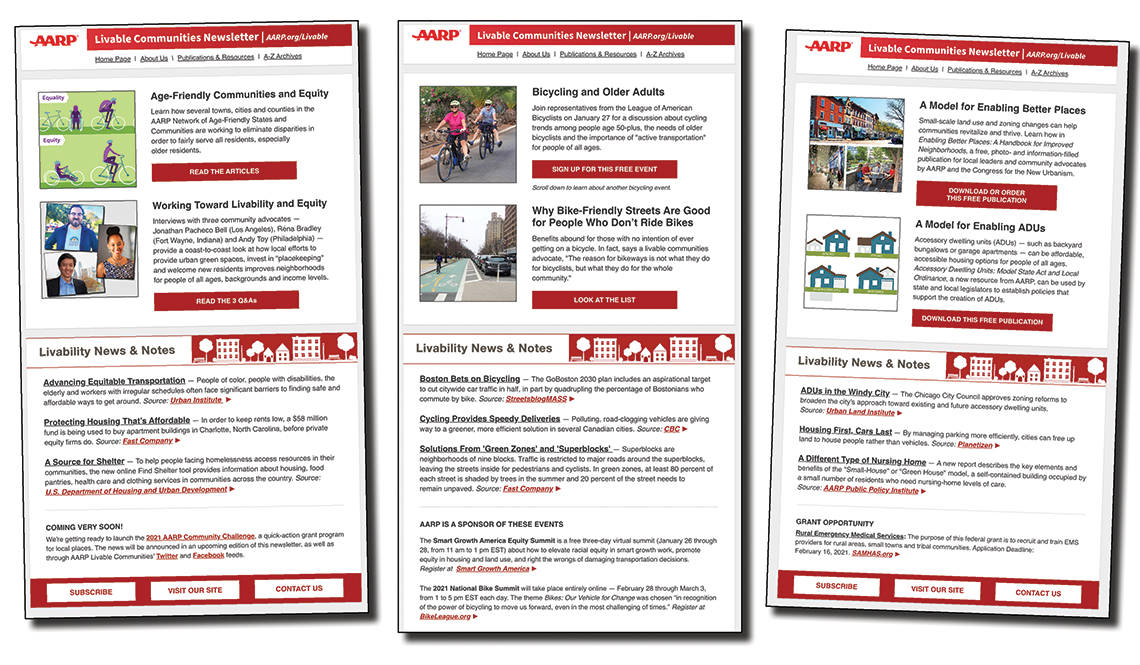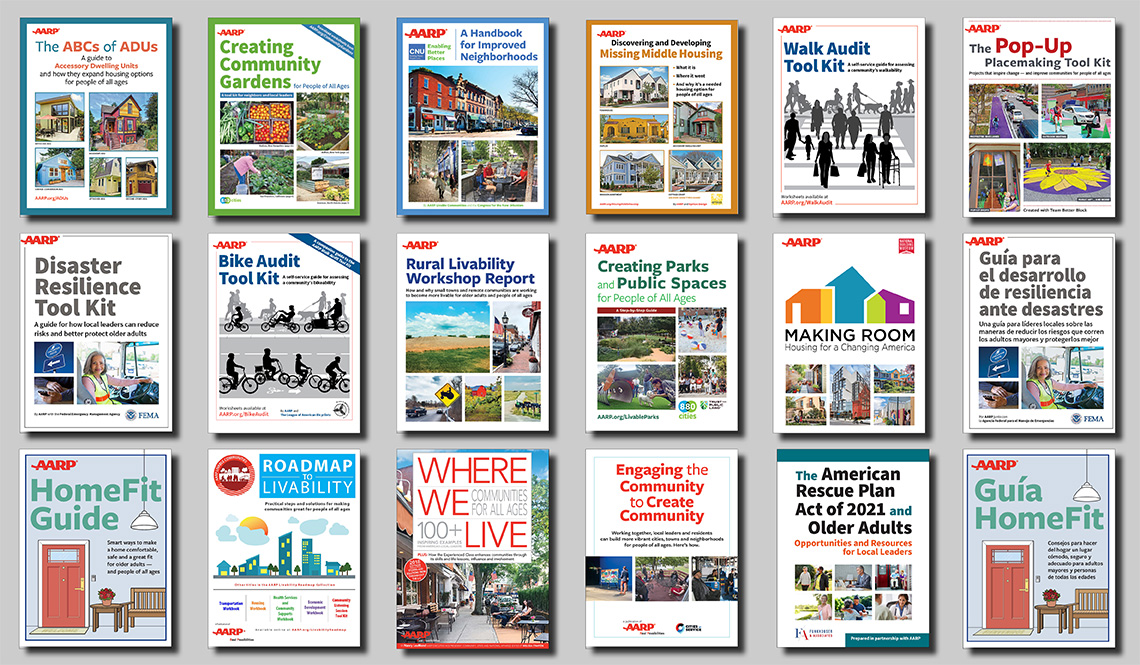Age-Friendly Seattle and King County, Washington, Respond to COVID-19
A look at how the city of Seattle and its surrounding county are serving and protecting older adults
With about 750,000 residents, Seattle, Washington, is the largest city in Washington state. About 12 percent of those residents are age 65 or older. (Seattle is also the county seat of King County, which has a population of about 2.2 million people, 13 percent of whom are 65-plus.) The city and Washington state as a whole were part of the first wave of COVID-19 infections, illnesses and deaths in the United States.
Seattle joined the AARP Network of Age-Friendly States and Communities in 2016. Its initiative, Age Friendly Seattle, promotes age-friendly improvements within the city and throughout the region.
Community Representative:
- Cathy Knight, Director of Aging and Disability Services, City of Seattle, explains how the community is helping its older residents during the coronavirus pandemic.
(Information provided to AARP on May 14, 2020)
The Challenge
“Our challenges span across many areas and parts of life. First, food access is one of the most pressing concerns we hear from the community. Isolation and the need for information are other top concerns with the influx of evolving information and decreased social interactions, particularly for older people who were already at high risk of social isolation before the pandemic."
“Lastly, we also assumed that there are many older adults who are flying under our radar and not currently receiving services from any agency, but may have difficulty accessing basic needs. While this has been an ongoing challenge, it’s an increased concern with the onset of COVID-19. We know there are countless other older people, adults with disabilities, caregivers and others not currently being served who would benefit from our support and services provided by the city and county governments and our community partners."
The Focus Areas
The Response
“Fortunately, Aging and Disability Services, or ADS, has a strong food network. On an annual basis, prior to COVID-19, our congregate or community meals programs served approximately 12,500 older people across Seattle and King County. Our home-delivered meal programs, Meals on Wheels and the Chicken Soup Brigade, served an additional 2,600 clients.
“With the onset of COVID-19, most of our 56 congregate meal sites have retooled their programs in order provide takeout and deliver sack lunches and grocery boxes. We developed new delivery guidelines to limit contact with clients and were able to extend our programs’ reach through federal stimulus funding.
“ADS also participates in an interdepartmental food task force that troubleshoots food access issues for people of all ages. Food resources for older people were added to Seattle Human Services’ Food Resource Interactive Map. All residents can utilize this tool to find food support.
“To understand the situation on-the-ground and support our clients, ADS case managers and community partners completed more than 14,000 client calls in April. This was a monumental task that helped us clarify which clients were at greatest risk and triage in-home care for them.
“Case managers offered general information and also helped transition people out of hospital care faster to help limit a surge in hospitalizations. Some clients questioned the need to continue to accept help from professional caregivers, so the case managers talked through the options and importance of care with the clients. Some clients were in situations where their basic needs were not being met. For instance, one client self-isolated after testing positive for COVID-19 but didn’t have a sufficient supply of food.
"Other clients needed transportation to medical appointments. Our case managers were able to prioritize needs and find solutions, such as sack lunch and grocery bag deliveries from the providers who formerly offered community meals.
“Virtual events and video recordings have become a powerful tool for reaching our service population and their families, to both share information and connect socially. The monthly Age Friendly Seattle Coffee Hour dates back more than 10 years — before the city of Seattle joined the AARP Network of Age-Friendly States and Communities. Each month local government officials come together with older adults to discuss issues, programs and topics of interest.
Response Partners
"More than a year ago, the coordinator began video-recording the events so they could be viewed on the Aging King County YouTube channel. When COVID-19 hit, the coffee hours went entirely virtual using Microsoft Teams, which transmits and auto-captions the videos in English and six other languages. This helps immensely in welcoming an online audience that includes people who are hard of hearing and, increasingly, people with limited English proficiency.
“Due to the success of our coffee hours, we started a second virtual event series called Close to Home: Stories of Health, Tech, and Resilience. On a monthly basis, community leaders or government or nonprofit representatives present on topics related to our themes. The events are also recorded and uploaded to the Aging King County YouTube channel.
“The virtual events are available on the social media platforms — including Facebook, Twitter, LinkedIn, Instagram and Pinterest — for Aging and Disability Services and Age Friendly Seattle."
The Results, Thus Far
“We are serving older people, adults with disabilities, caregivers and families in both traditional and new ways. We are finding new ways to get work done at every level.
“Through calls from ADS case managers, we were able to check on over 14,000 long-term care case management clients and their caregivers and provide invaluable support. Those who didn’t have food or other basic needs were connected to services and many needed reassurances and more information about COVID-19.
“We also know we’re making a difference when our information and referral call center — Community Living Connections — and network of community partners report an increase in calls.
"We know we make a difference when someone who didn’t have access to food, medical care or reliable transportation gets the help they need. We’ve also had remarkably few clients who receive long-term services and support contract COVID-19 because our services help people remain home, where there is less exposure. This highlights the importance of our work to support older adults’ essential needs and social connectivity.”
Research by Shosanna Preuss | Article published May 2020
- Learn about the AARP Network of Age-Friendly States and Communities
- Check out the network's Member List
- Connect with AARP Washington
- Find more Age-Friendly Responses to COVID-19
Stay Informed
The weekly, award-winning AARP Livable Communities e-Newsletter provides local leaders with information and inspiration for making their town, city or neighborhood more livable for older adults and people of all ages. Subscribe today!
AARP.org/Livable
Enter a topic, name, place, etc.

